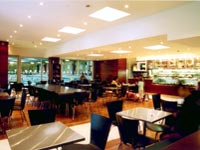|
 |
|
 |
| |
| |
| |
| |
| |
| |
| |
Campus: Kensington Campus
| |
| |
Career: Undergraduate
| |
| |
Units of Credit: 6
| |
| |
| |
| |
Indicative Contact Hours per Week: 3
| |
| |
Enrolment Requirements:
| |
| |
Prerequisite: MUSC1302 or MUSC1312 or MUSC2111 or MUSI1142; Excluded: MUSC2112
| |
| |
| |
| |
| |
 |
|
 |
Description
A study of 19th-century European music in its historical, social and cultural contexts. Includes a tutorial in musicological research techniques and discussion of historical performing conventions.
Learning Outcomes
Upon completion of this course, students should:
- Become familiar with the most representative compositions of the Romantic period, including Lieder, solo and chamber music, and orchestral works
- Be able to discuss their significance and stylistic features in an articulate and informed manner
- Acquire knowledge about music and society in 19th-century Europe and the role 19th-century aesthetics and world-view played in shaping modern musicological discourse
- Gain an understanding of historical performance practices and the role they play in conveying the sound world of the composer to modern listeners
- Deepen their analytical approaches, critical thinking, research and academic writing and communications skills.
Assessment
- Essay - 40%
- Short paper and presentation - 30%
- Reading log and discussion - 20%
- Take home exam - 10%
|



